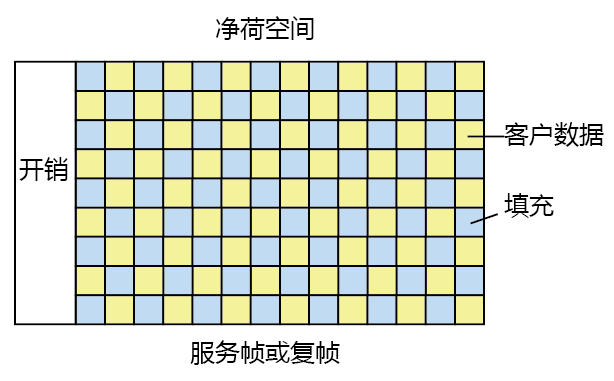目录
前言
Elastic Search中的酒店数据来自于MySQL数据库,因此MySQL数据发生改变时,Elastic Search也必须跟着改变,这个就是Elastic Search与MySQL之间的数据同步。

思路分析
常见的数据同步方案有三种:
- 同步调用
- 异步通知
- 监听binlog
同步调用
方案一:同步调用

基本步骤如下:
- hotel-demo对外提供接口,用来修改elasticsearch中的数据
- 酒店管理服务在完成数据库操作后,直接调用hotel-demo提供的接口,
异步通知
方案二:异步通知

流程如下:
- hotel-admin对mysql数据库数据完成增、删、改后,发送MQ消息
- hotel-demo监听MQ,接收到消息后完成elasticsearch数据修改
监听binlog
方案三:监听binlog

流程如下:
- 给mysql开启binlog功能
- mysql完成增、删、改操作都会记录在binlog中
- hotel-demo基于canal监听binlog变化,实时更新elasticsearch中的内容
选择
方式一:同步调用
- 优点:实现简单,粗暴
- 缺点:业务耦合度高
方式二:异步通知
- 优点:低耦合,实现难度一般
- 缺点:依赖mq的可靠性
方式三:监听binlog
- 优点:完全解除服务间耦合
- 缺点:开启binlog增加数据库负担、实现复杂度高
实现数据同步
思路
当酒店数据发生增、删、改时,要求对elasticsearch中数据也要完成相同操作。
步骤:
- 声明exchange、queue、RoutingKey
- 在增、删、改业务中完成消息发送
- 完成消息监听,并更新elasticsearch中数据
- 启动并测试数据同步功能
运行项目

其中包含了酒店的CRUD功能:

声明交换机、队列
MQ结构如图:

1)引入依赖
<!--amqp-->
<dependency><groupId>org.springframework.boot</groupId><artifactId>spring-boot-starter-amqp</artifactId>
</dependency>2)声明队列交换机名称
在constatnts包下新建一个类MqConstants:
package com.xins666.hotel.constatnts;public class MqConstants {/*** 交换机*/public final static String HOTEL_EXCHANGE = "hotel.topic";/*** 监听新增和修改的队列*/public final static String HOTEL_INSERT_QUEUE = "hotel.insert.queue";/*** 监听删除的队列*/public final static String HOTEL_DELETE_QUEUE = "hotel.delete.queue";/*** 新增或修改的RoutingKey*/public final static String HOTEL_INSERT_KEY = "hotel.insert";/*** 删除的RoutingKey*/public final static String HOTEL_DELETE_KEY = "hotel.delete";
}3)声明队列交换机
定义配置类,声明队列、交换机:
package com.xins666.hotel.config;import com.xins666.hotel.constants.MqConstants;
import org.springframework.amqp.core.Binding;
import org.springframework.amqp.core.BindingBuilder;
import org.springframework.amqp.core.Queue;
import org.springframework.amqp.core.TopicExchange;
import org.springframework.context.annotation.Bean;
import org.springframework.context.annotation.Configuration;@Configuration
public class MqConfig {@Beanpublic TopicExchange topicExchange(){return new TopicExchange(MqConstants.HOTEL_EXCHANGE, true, false);}@Beanpublic Queue insertQueue(){return new Queue(MqConstants.HOTEL_INSERT_QUEUE, true);}@Beanpublic Queue deleteQueue(){return new Queue(MqConstants.HOTEL_DELETE_QUEUE, true);}@Beanpublic Binding insertQueueBinding(){return BindingBuilder.bind(insertQueue()).to(topicExchange()).with(MqConstants.HOTEL_INSERT_KEY);}@Beanpublic Binding deleteQueueBinding(){return BindingBuilder.bind(deleteQueue()).to(topicExchange()).with(MqConstants.HOTEL_DELETE_KEY);}
}发送MQ消息
在增、删、改业务中分别发送MQ消息:

接收MQ消息
hotel-demo接收到MQ消息要做的事情包括:
- 新增消息:根据传递的hotel的id查询hotel信息,然后新增一条数据到索引库
- 删除消息:根据传递的hotel的id删除索引库中的一条数据
1)首先在service包下的IHotelService中新增新增、删除业务
void deleteById(Long id);void insertById(Long id);2)在service.impl包下的HotelService中实现业务:
@Override
public void deleteById(Long id) {try {// 1.准备RequestDeleteRequest request = new DeleteRequest("hotel", id.toString());// 2.发送请求client.delete(request, RequestOptions.DEFAULT);} catch (IOException e) {throw new RuntimeException(e);}
}@Override
public void insertById(Long id) {try {// 0.根据id查询酒店数据Hotel hotel = getById(id);// 转换为文档类型HotelDoc hotelDoc = new HotelDoc(hotel);// 1.准备Request对象IndexRequest request = new IndexRequest("hotel").id(hotel.getId().toString());// 2.准备Json文档request.source(JSON.toJSONString(hotelDoc), XContentType.JSON);// 3.发送请求client.index(request, RequestOptions.DEFAULT);} catch (IOException e) {throw new RuntimeException(e);}
}3)编写监听器
在mq包新增一个类:
package com.xins666.hotel.mq;import com.xins666.hotel.constants.MqConstants;
import com.xins666.hotel.service.IHotelService;
import org.springframework.amqp.rabbit.annotation.RabbitListener;
import org.springframework.beans.factory.annotation.Autowired;
import org.springframework.stereotype.Component;@Component
public class HotelListener {@Autowiredprivate IHotelService hotelService;/*** 监听酒店新增或修改的业务* @param id 酒店id*/@RabbitListener(queues = MqConstants.HOTEL_INSERT_QUEUE)public void listenHotelInsertOrUpdate(Long id){hotelService.insertById(id);}/*** 监听酒店删除的业务* @param id 酒店id*/@RabbitListener(queues = MqConstants.HOTEL_DELETE_QUEUE)public void listenHotelDelete(Long id){hotelService.deleteById(id);}
}


















